Years ago, the American workforce was comprised of two armies: blue collar and white-collar. It was an oversimplified way of identifying those who wore uniforms and worked hourly manual jobs from those who wore ties and button-down shirts, had college degrees and worked in offices.
The New-Collar worker is an amalgam, educated in a specific area of technology and without a traditional four-year college degree.

The New-Collar worker is a direct response to the global shortage of high-tech workers.
Per David Leaser, Senior Executive of Strategic Growth Initiatives for IBM’s Training and Skills Program, ”There are more than half-a-million technology jobs that need to be filled in the United States right now, but our universities are only producing one tenth of the computer-science graduates needed.”
Leaser continues, “There’s a real surge in the number of mid-level technology jobs that don’t require a traditional bachelor’s degree. They’re not blue collar. They’re not white collar. We call them New Collar.
“These are roles that prioritize capabilities over traditional degrees. They’re in leading technology fields like cloud computing, cyber security, digital design and cognitive business.”
In 2018, New Collar candidates accounted for 15 percent of all the IBM hiring in the United States. Right now, as many as one-third of IBM employees have less than four-year college degrees.
New Collar candidates build their skills through community colleges, vocational schools, coding camps, internships or career education programs like IBM’s P-TECH model, which stands for Pathways in Technology Early College High School. P-TECH provides young people from diverse backgrounds with the academic, technical and professional skills and credentials they need for competitive tech jobs.

Digital Badges and the New Collar worker
IBM’s Leaser states that it’s critical to find ways to not only develop in-demand skills but to find new ways of recognizing and certifying the skills and competencies needed to succeed in New Collar jobs.
Digital badges are one solution.
IBM itself offers more than 1,000 badges covering a wide range of technologies tied to its products and services. To date, the company has issued more than 1,000,000 badges to employees, partners and customers to ensure a pool of qualified experts in IBM technologies
People get skills-training to get a job, keep a job or get a better job.
Digital badges signal competence and achievement. Those created with the Open Badge Standard, which is almost all of them these days, are immediately verifiable by employers. This is very helpful in the hiring process, both for employers and candidates. It accelerates getting and keeping a job.
Digital badges are also supported by secure technologies like blockchain, so they can’t be faked. This overcomes a chronic problem for hiring managers. A study by ADP, best known for its payroll services, examined 2.5 million resumes and found that 21 percent included fraudulent degrees. Overall, 78 percent were deemed misleading.
How will New Collar workers impact credentialing?
In addition to creating digital badges and the technology needed to deliver them, IBM has designed entire learning paths leading to capstone credentials. A learning path may include a progression of badges building on each other and culminating in a credential for a specific job role. A job task analysis for each job role informs the learning path to ensure that real-world skills and competencies are being taught and tested.
Badges are a type of credential and will be an integral part of New Collar jobs. They give evidence of highly specific skills for highly specific job roles. The ability for employers to verify digital badges at the touch of a button adds a layer of confidence and security long missing in resumes and job applications.
Worldwide there are an estimated 150,000 badges issued by companies, professional/trade associations, higher education and government. Because badges have a narrow focus, there will likely be tens of thousands more introduced in the future. Creating consistency in terminology, purpose, use and intent will be an ongoing task for the credentialing industry.
Action Items
Discover how Webassessor, Kryterion’s award-winning test-development and test-delivery platform, seamlessly integrates with Accredible, a leading provider digital badges and certificates. Just click here.
If you’re brand new to the concept of digital badges and certificates, click the banner below to view a recent webinar entitled Badges 101, a joint presentation by Kryterion and Accredible.








